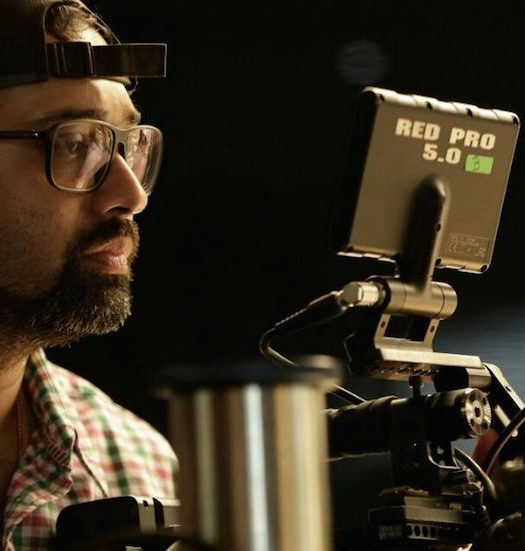I hope I get to work in India soon as I’m amazed by some technically complex movies from India, cinematographer Pierre Gill
“My passion for cinema comes mostly from storytelling. Storytelling makes me dream. A good story or good script brings out the creativity in me”
“It’s a privilege to work in cinema; my passion comes from creating images but it comes mostly from storytelling. Storytelling makes me dream. A good story or good script brings out the creativity in me. I start imagining images when I read. Bringing those ideas into reality is the most difficult part”, said world-renowned cinematographer Pierre Gill, while addressing a press conference at International Film Festival of India, Goa on November 26, 2018.

Canadian Cinematographer Pierre Gill interacting with media at Media Centre, IFFI Goa, moderated by Ermelinda Dias
Gill said he was amazed by some technically complex Indian movies and skills of Indian artists and he hoped he gets to work in India soon.
Speaking on his experience in Blade Runner 2049, he said “My unit in Blade Runner 2049 worked on stunts, explosion, flying ships and underwater sequences and I used green screen technique to a large extent. The whole experience was really fun, due to the big scale of the movie. Movies like Blade Runner give you the opportunity to try all the latest equipment.”
Stating that he freely embraces diverse cinematic genres, he said, “I like to do everything; I don’t want to do the same job; I like it when I can change, variation keeps one healthy”.
Replying to a question on what types of films make for the most difficult cinematography, Gill said that films like Polytechnique are challenging as they have hard drama. “When you have to be real and true and strong: that is when it is the hardest; you cannot put sparkles on human drama”, noted Gill.
He said the role of cinematographers is “very very important”; they have to do a lot more than lighting; they need to focus on the aspects the director wants, but at the same time need to challenge the director and help him to better enable the audience to follow the story properly.

Pierre Gill addressing young, budding cinematographers
Here is Gill advising budding cinematographers : “You have to be very strong; it is going to be a very difficult life. The life of cinematographer is by the second. Also, you have to travel a lot. Don’t do it for the money; money will come if you do well. You have to be a very good psychologist as well, since you have to deal with a lot of departments and have to be always on toes to attend to their questions. You have to be very open-minded. You have to be humble, if you don’t know, you must be able to say “I don’t know”.”
He had praise for new technologies coming in but was unhappy about the way technology is used by some cinematographers. He opined that though digital cameras are good for indoor shoots, film continues to be the best option for exterior shoots.
Background
Pierre Gill, a Montreal native, is a cinematographer and assistant director, known for Upside Down (2012), Casanova (2015) and Polytechnique (2009). He is a member of Canadian Society of Cinematographers (CSC).
Gill began his career at age 24 by co-founding Kino Films, a successful production company producing commercials and music videos. Since then, he worked with many talented film and television directors including Jean-Pierre Jeunet, Denis Villeneuve, Charles Binamé, Erik Canuel, Jean-Marc Vallée, working on such films as Black List, The Art of War, Lost and Delirious, The Rocket, Polytechnique, & Upside Down. He is closely associated with Cinema of Quebec.
He has been honoured over 35 times by both the American (A.S.C.) and the Canadian (C.S.C.) Societies of Cinematography, and many prestigious international film festivals. He also obtained the prestigious Kodak New Century Award for his outstanding contribution to the art of cinematography. He served as the second unit director of photography (DOP) on Villeneuve’s Blade Runner 2049, which won the Academy Award for Best Cinematography.
He has also directed episodes of the television series Charlie Jade and the made-for-television film The Last Casino. He is recognized for his diverse skills, his cinematic eye, and his efficiency on a set.


